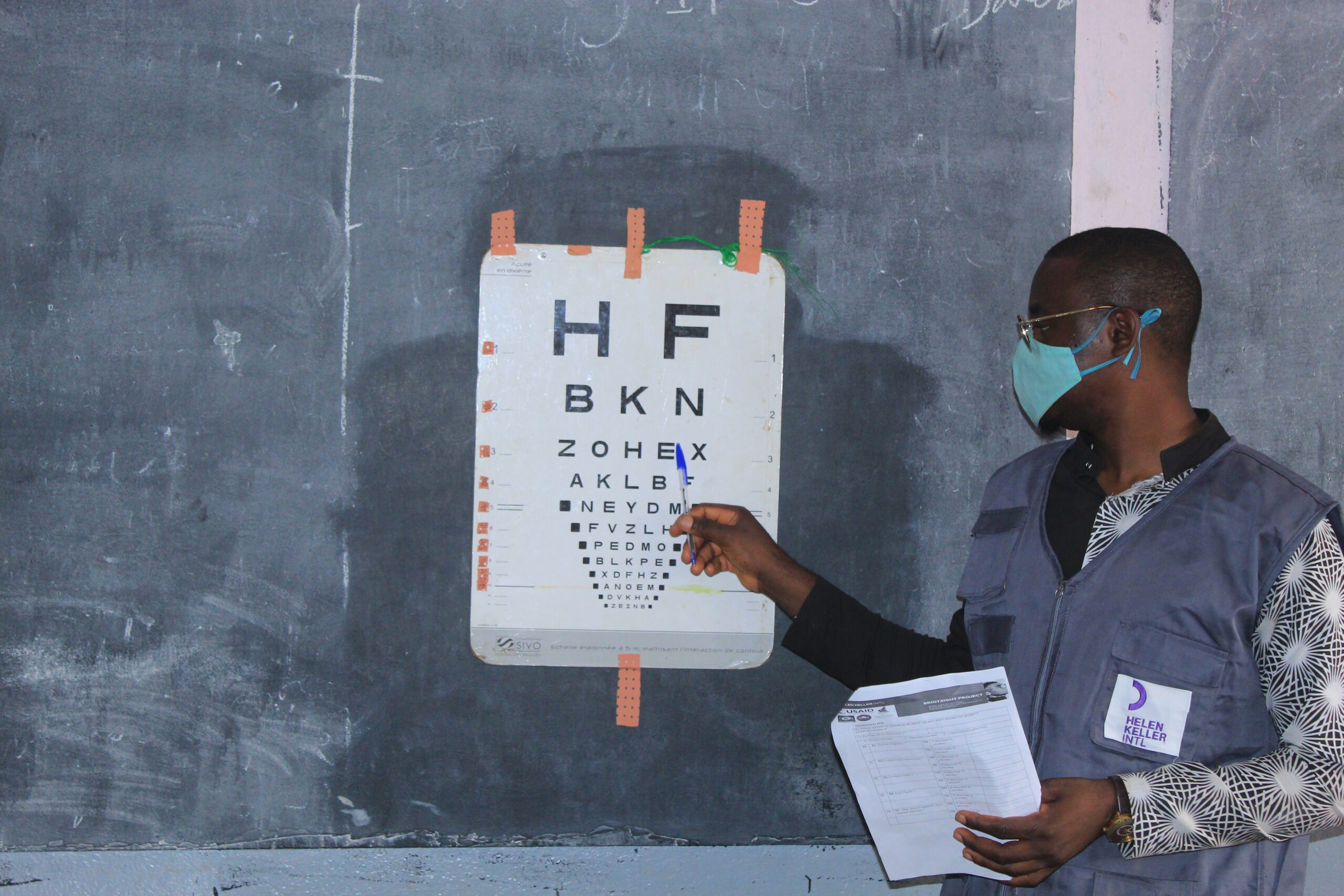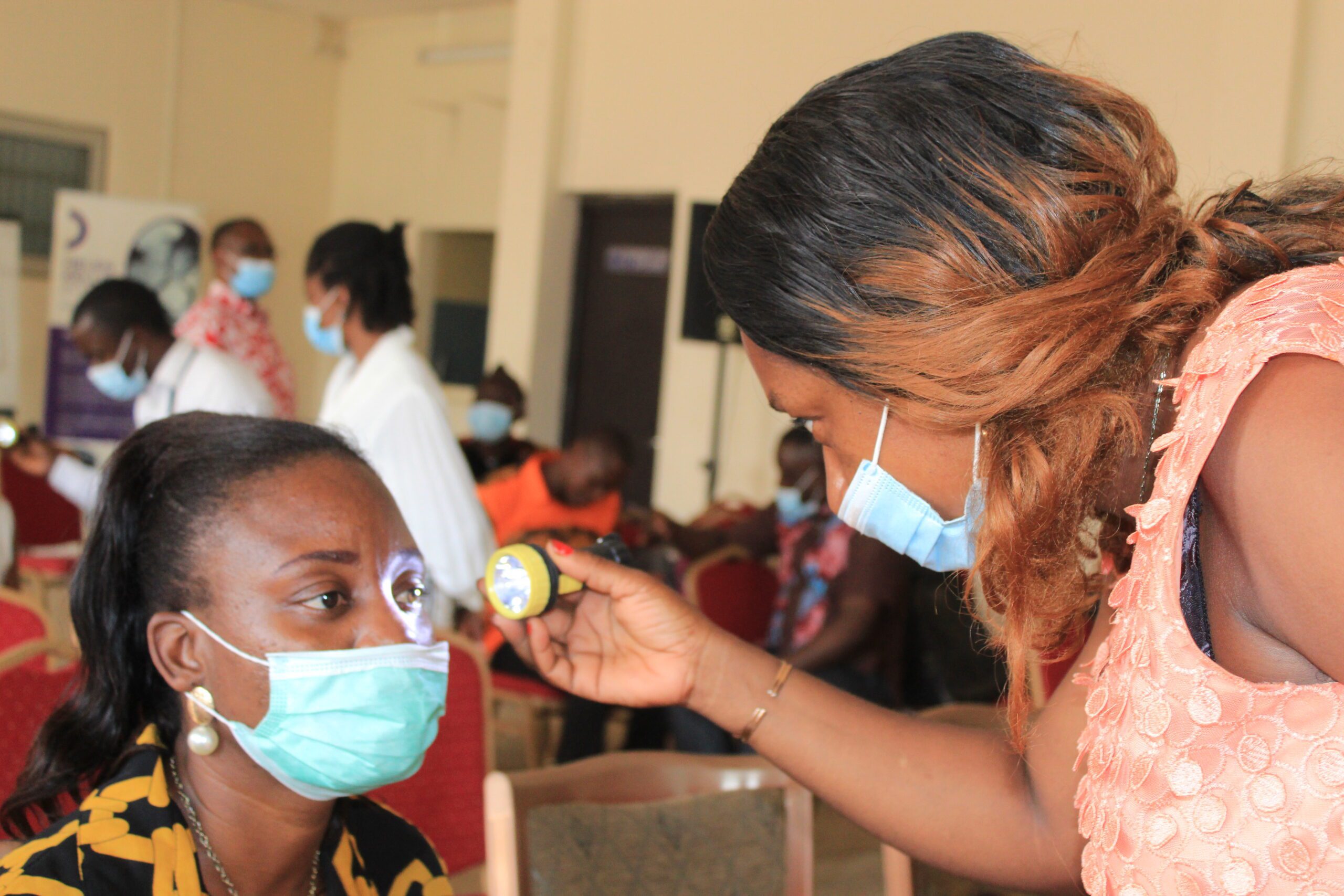Bright Sight for a Bright Future
Diboke, age 13, and her younger sister Ebokolo, age 11, live in a happy yet modest home with their parents and family at Obobogo, a poor semi-urban area in Yaoundé, the capital city of Cameroon. The sisters attend the nearby St. Benedict Secondary School, and even though they are bright and eager students, their grades are average.
I have been suffering from blurry vision for some time now and when my mother took me for check-up at the hospital, I was told I needed to put on eyeglasses, but my mother could not afford them.
Diboke, age 13
Diboke and Ebokolo are two of more than 26.3 million people in Africa who have some form of visual impairment. Although vision care has not always been a major healthcare priority in many parts of Africa, Helen Keller Intl is now leading the way. Last October, on World Sight Day, Helen Keller launched “Bright Sight” in partnership with USAID’s Child Blindness Program, the Cameroon Ministry of Public Health, the Ministry of Secondary Education, and Acha Eye Hospitals.
Bridging the gap of vision care
As part of this effort, Diboke, Ebokolo, and more than 19,000 students between 11-15 years old from secondary schools in Cameroon will be offered vision screenings. The goal is to raise awareness regarding eye health and establish a sustainable, scalable system of school-based eye health services, including free eyeglasses to those who need them.

In Cameroon, even though data on visual impairment is scarce, the overall prevalence of blindness is estimated at 1% and visual impairment at 3%. This translates to approximately 270,000 blind people in Cameroon and almost 810,000 visually impaired, meaning that more than 1 million people in Cameroon suffer from some form of visual challenge.
The limited availability of public and private clinics offering eye care services – even within large cities – severely inhibits access to care. And even when eye health facilities are present in communities, the cost of services is often prohibitive, and eyecare is therefore inaccessible for the majority of poor families, particularly for children.
Detecting and improving vision impairment
Bright Sight will work in phases. First, Helen Keller, with the technical support of the Ministry of Public Health and the Ministry of Secondary Education, mobilized teachers to encourage and support children and their parents to participate in the vision screening sessions. Next, training sessions were organized for participating teachers and nurses on screening strategies that will be adopted in the schools.
Led by the teachers and nurses of each participating school, the screenings are taking place with the support of Acha Eye Hospitals staff.
“Teachers are going to be instrumental during the implementation phase of the project, which consists of screening about 24,000 students in schools for their vision,” Dr. Ismael Teta, Helen Keller’s Cameroon Country Director, explained. “What we are doing in the Efoulan health district with this Bright Sight project is to support the ministries of health and education to give each and every child in the targeted schools the opportunity to have bright sight.”

Eyeglasses are provided to children free of charge through a donation from Essilor Vision Foundation. Parents of children who receive eyeglasses are also being counseled on how to take care of their eyeglasses and are encouraged to have their children’s vision reexamined each year. Children with refractive errors and more serious eye health needs, or in need of surgery, are also being referred for appropriate eye care at a local hospital.
We know the problem of vision in various schools is serious. If students don’t see well, it can compromise their output.
Dr. Elizabeth Attha, Chief Medical Officer of Acha Eye Hospitals
As Bright Sight continues with screenings, clear diagnoses and free glasses, Helen Keller will continue to tackle the isolation and low self-esteem that can accompany undetected vision problems, and give children a chance to thrive in school. After many decades of being largely ignored, these timely vision interventions can make all the difference in a child’s life – enabling them to reach their true potential and achieve their dreams.

Your support is crucial to remove barriers to health, vision, and nutrition.









